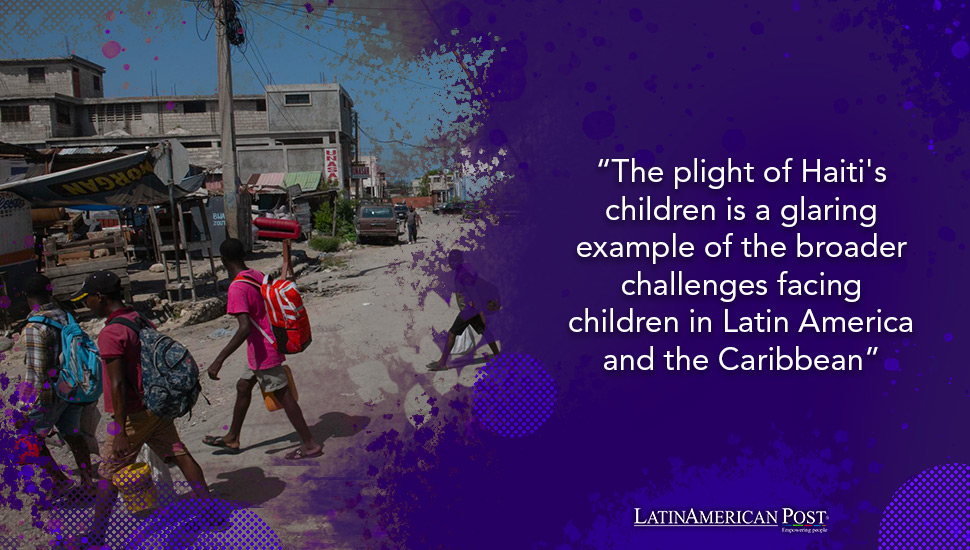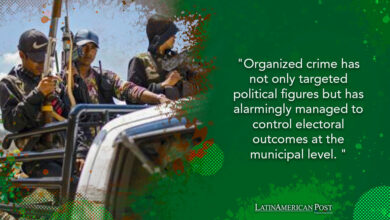Amplifying the Cry for Help: Haiti’s Youth on the Brink and the Global Duty to Act

The plight of Haiti’s children, grappling with gender violence, forced recruitment, and child marriage, underscores a critical issue that demands immediate and concerted global attention, especially as we approach International Women’s Day.
A Call to Confront Gender-Based Violence and Poverty
The stark reality facing Haiti’s children, particularly its girls, is a chilling reminder of the world’s ongoing battle against gender-based violence, child exploitation, and systemic poverty. As reported by Plan International, the situation in Haiti is not just alarming but a dire call to action that cannot be ignored. The organization’s Multisectoral Needs Analysis, conducted in the Artibonite department, brings to light the severe threats of gender violence, forced recruitment by criminal groups, sexual assault, and child marriage, presenting a harrowing picture of the challenges faced by the nation’s youth.
As we stand on the eve of International Women’s Day, it is imperative to reflect on the broader implications of this report, not only for Haiti but for the entire Latin American region and beyond. The vulnerabilities highlighted in Haiti are symptomatic of more significant, systemic issues that afflict children across the globe, especially in areas ravaged by political instability, economic deprivation, and social neglect.
A Grave Violation with Far-reaching Consequences
The coerced sexual exploitation of girls for financial survival or to meet familial needs is a grave violation of human rights and dignity. It leads to a cascade of adverse outcomes, including early pregnancies, sexual violence, and the discontinuation of education, thereby perpetuating a cycle of poverty and vulnerability that spans generations. Similarly, the normalization of child marriage, driven by economic desperation, and the shocking recourse to extrajudicial settlements in cases of sexual abuse underline a systemic failure to protect the most vulnerable.
Moreover, the forced recruitment of children by armed groups represents a stark violation of their rights and a theft of their innocence and potential. Such practices not only perpetuate the cycle of violence and instability but also undermine any hope for a peaceful and prosperous future.
The plight of Haiti’s children is a glaring example of the broader challenges facing children in Latin America and the Caribbean, where violence, exploitation, and neglect are all too common. The report’s findings resonate with the experiences of children in gang-dominated slums of Central America, politically unstable regions of South America, and beyond. This shared vulnerability underscores the need for a united, international response to protect children’s rights, ensure their safety, and guarantee their future.
A Sobering Reminder of Global Struggle
As we observe International Women’s Day, the situation in Haiti serves as a sobering reminder of the global struggle for gender equality and the protection of children’s rights. It calls for an urgent reassessment of priorities by the international community, demanding a world where the rights of all children are upheld and gender-based violence is eradicated.
Addressing this crisis requires a multifaceted approach encompassing immediate humanitarian aid, long-term development strategies, and systemic policy reforms. Key initiatives should include:
Enhanced International Support: The international community, including governments, NGOs, and civil society, must increase funding and resources dedicated to addressing the immediate needs of Haiti’s children, including access to education, healthcare, and nutrition.
Strengthening Legal Frameworks: Implementing and enforcing stricter laws against gender violence, child marriage, and the exploitation of children is crucial. International pressure can help ensure local governments adopt and uphold these legal protections.
Community-Based Solutions: Empowering local communities through education and awareness campaigns can help change societal norms and attitudes that condone or ignore the exploitation and abuse of children.
Supporting Mental Health: Addressing the psychological impact of violence and exploitation on children is vital. Providing accessible mental health services can aid in their recovery and reintegration into society.
Economic Empowerment: Initiatives that promote economic development and provide families with sustainable income opportunities can reduce the financial pressures that lead to child exploitation and forced marriages.
Defining a Legacy for Future Generations
The resilience of Haiti’s children, faced with overwhelming adversity, should serve as a call to action. It is a stark reminder that the struggle for rights, protection, and dignity is not confined to Haiti but is a global challenge that requires collective effort and unwavering commitment. The international community’s response to this crisis will shape the futures of Haiti’s children and reflect on our collective moral standing.
Also read: Global Coalition Rallies to Restore Peace in Haiti Amid Gang Crisis: A Latin American Perspective
The situation in Haiti, as revealed by Plan International’s report, is a critical issue that demands more attention and action. It is a clear call for the global community to come together to address the systemic problems that allow such violations of children’s rights to persist. By tackling these challenges head-on and prioritizing the well-being of the world’s most vulnerable, we can pave the way for a more just, equitable, and hopeful future for all children. The time to act is now, as the children of Haiti, and indeed children everywhere facing similar plights, cannot afford to wait. Our actions today will define the legacy we leave for future generations.





